After 28 years, migrant partners overcome all the challenges to get back together.
Carlos Espino-Barros and Claudia Montiel, never imagined that more than two decades after separating in Mexico, they would meet and marry. Nor did they count on Migration to put their love to the test for almost five more years.
Last month, Claudia obtained her permanent residence, and was finally able to enter the United States to meet with her husband, her boyfriend of adolescence and 15-year-old chamberlain.
Carlos and Claudia are 47 years old, but their love story began when they met in Acapulco, Mexico. They were children and they were in their 12s. They lived in the same neighborhood.
“I saw her and I liked her,” says Carlos. At age 13, he proposed to be his girlfriend without remembering that he already had another. “I had to cut her to be her boyfriend,” he says.
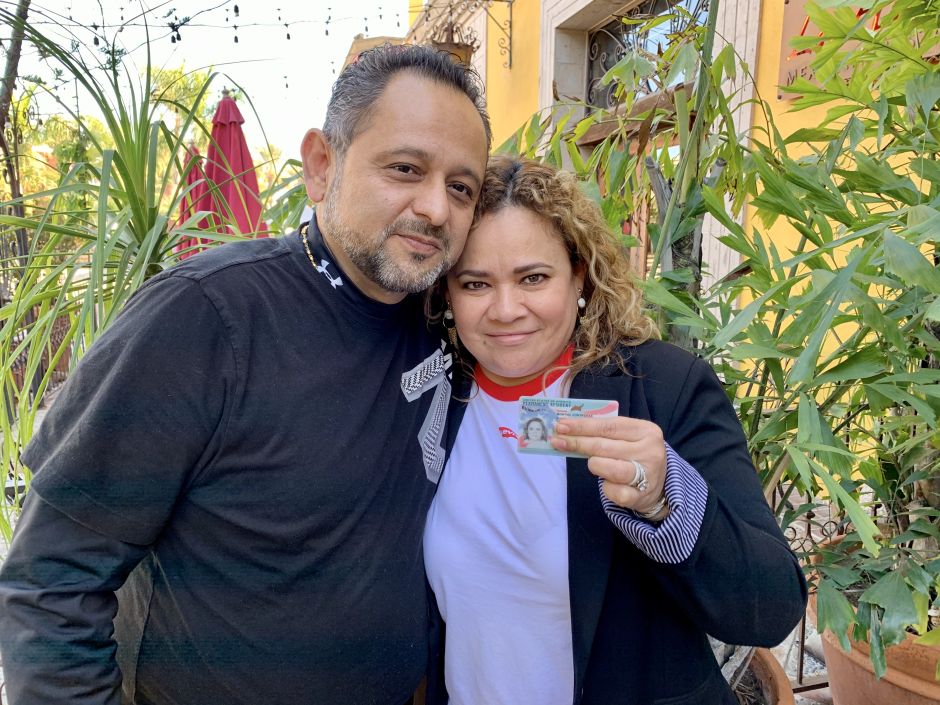
The young couple were engaged for five years under the strict supervision of the girl's parents. “I had to ask permission from their parents,” says Carlos.
Everything was going well, until the mother-in-law discovered that the 17-year-old boy had another girlfriend who was going to take an afternoon (dance). Claudia, her parents were forbidden to go out with Carlos, and they could only see each other in her house.
“When my mother knew that Carlos was going to go to the afternoon with another girl, he forbade me to see him again, and told me that I didn't want to see him around the house,” he adds.
Carlos talks about his depression because he felt that his mother-in-law didn't really want him, and it would never be enough for his daughter.
“I stopped going to school and I didn't go to work anymore,” he recalls.
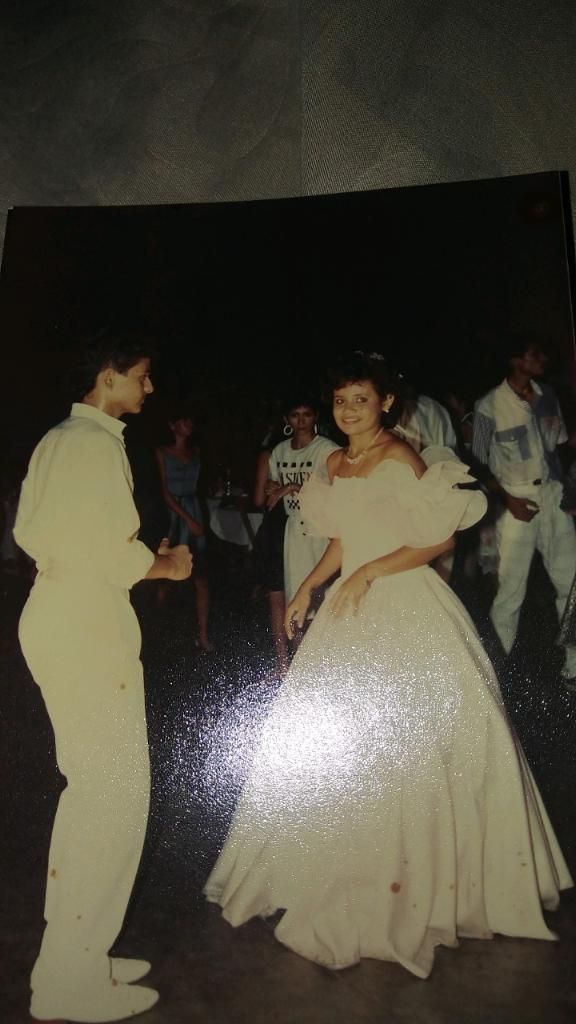
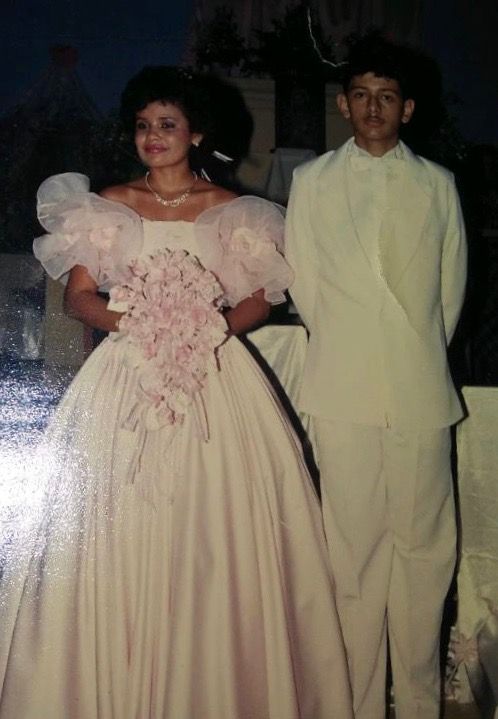
Two or three months after the breakup of the courtship, in 1988 he decided to come to San Diego, California, where he had a brother.
“When I knew that, the world came over me,” says Claudia. With the help of the neighbors, he made an appointment secretly from his parents, to say goodbye to the boy.
But the two times that were left to be seen in the house of the neighbors, her father did not go to work waiting for the plumber for a repair, and Claudia could not escape to see her crush.
“I got crazy. I tried to steal it, but my mother didn't let me, ”he says.
With a broken heart he undertook the journey north. A month he sent her a letter with two photos, in which he promised her that in a year he would return for her.
But a second letter spoiled everything. “There he told me that he had learned that I was dating several men,” says Claudia.
She never answered that letter, and they lost all contact.

Three years after his relationship ended, in 1991, Carlos married a woman in San Diego who helped him fix his immigration status and with whom he had a son who is now 24 years old.
Carlos divorced and remarried in second nuptials. From that relationship, two more children were born, a daughter who is now 19 years old and a 17 year old son.
But during all those years of marriage, Carlos admits that he never forgot his childhood girlfriend. Even on his trips to his homeland he looked for her.
“The first time they told me that I no longer lived there; The second time, I saw her from a distance and I realized she was pregnant. She didn't see me and I said to myself, "What am I doing here?" This is not OK. I am married and she too, ”he recalls telling himself and walking away.
What Carlos did not know is that Claudia never married. But he did have a couple of relationships. Two of them were born from one of them, one of whom died. The surviving son is 20 years old.
When Carlos divorced for the second time, he went into depression and suffered panic attacks to the extent that he had to medicate. “I had stress on everything I gave. I took between 5 and 6 pills daily for depression and anxiety. ”
It was his daughter who at that time was 12 years old, who suggested opening a Facebook account so he could see and talk.
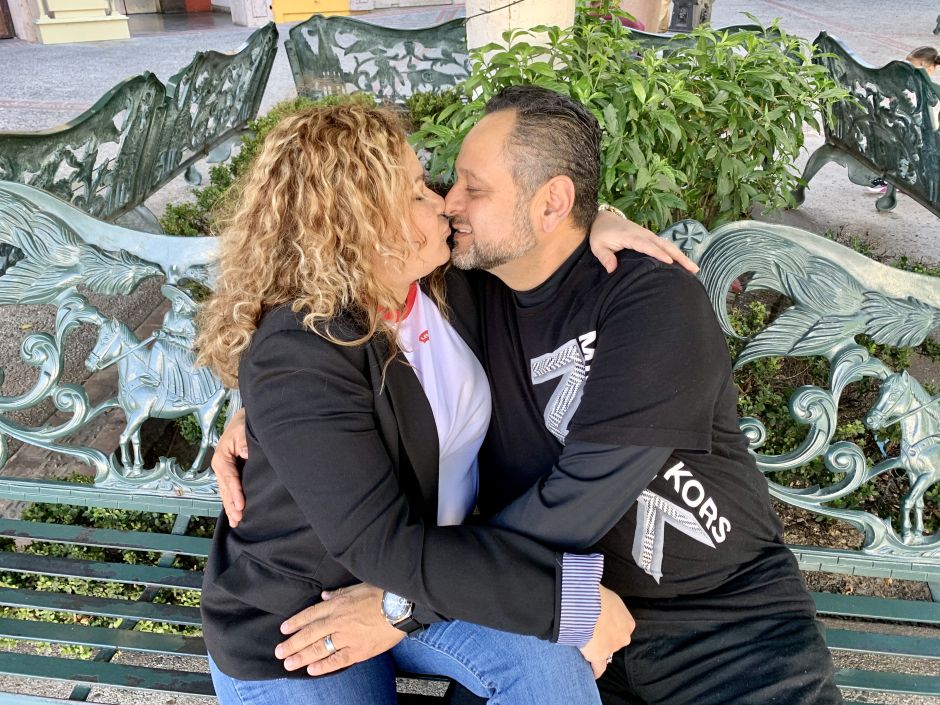
Already on Facebook, Carlos ran into Claudia's sister, and began searching her teenage girlfriend in Acapulco online. When he found her in September 2011, he sent her a friend request and a message with just a “hello!” Or another word.
"I always wanted to know about his life," he says.
Claudia did not see the message until five or six months later, as in February 2012.
“I thought, maybe he doesn't want to talk to me,” says Carlos.
What happened was that Claudia didn't have the habit of checking her messages. And that Facebook page was from his nail business in Acapulco.
“For the moment, I didn't recognize him until I got into his profile, and I saw that among his photos, he had one of the ones he sent me when he came to San Diego. Yes it's him, I said.
When Claudia answered the message, he asked for her phone number.
The first thing she did when they could talk was to release an old complaint. “Why did you leave me damn! You never came back! He didn't ask me how you are, ”he remembers laughing.
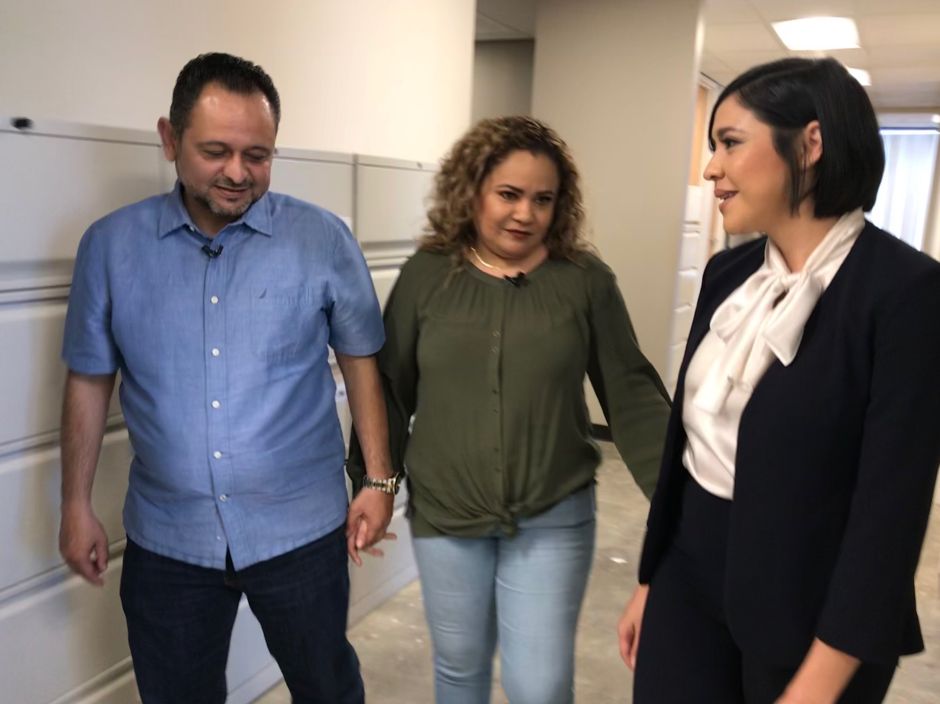
In June 2012, the couple met again in person in San Diego. “My sister and my mother went for her to the Tijuana airport. I couldn't go pick her up for my job as troker"
Six months later, in January 2013, he handed her the engagement ring.
On July 4, 2015, they were married in a ceremony in Tijuana where the mother-in-law who had not wanted him for her daughter's boyfriend arrived.
"She told me that if she had known everything her daughter was going to suffer, she would have let me take her and she wouldn't have opposed our relationship," he says.
Carlos says that although he married twice, he always kept Claudia in his thoughts. “I never stopped loving her. In all these years that I didn't see her, I always dreamed her. That's why as soon as I had it in front of me, I said, marry me. ”

Claudia admits that since they met again she always lived in fear of losing Carlos again.
But when the couple believed that nothing would separate them, they found that the immigration authorities still denied Claudia entry.
“The first time she came to see me in San Diego, she had a tourist visa that was about to expire. We were so excited that it occurred to us that we should go to Las Vegas for her to know, ”he recalls. "But since the visa was about to expire, we decided to go to the border line to ask for a permit for another week for the trip."
The immigration officer not only did not authorize the permit but also took away the tourist visa, and took it out of the country. “I thought we were going to get married in Las Vegas, and I wanted to stay here,” says Claudia. They didn't think that problem was going to be a real headache later.
After marrying in Tijuana, Carlos had to turn to immigration lawyer Eric Price to help him in his residency petition for his wife. He had become a citizen by naturalization in 2014.
But while the process was taking place, and forgiveness was achieved, Claudia could not enter the US.
“She came to live in Tijuana, and I came and went three times a week to see her. They were very heavy days, ”explains Carlos.
Claudia talks that her husband had dark circles because she only slept two or three hours a day.
"From my nerves, I started to eat my nails to the degree that they bled me," he recalls. More when in Ciudad Juárez on a first attempt, he was denied residence.
It took almost five years, from summer 2015 to last month for Claudia to receive her resident card, enter the United States and live under the same roof as her husband.
Since Carlos met with Claudia, he stopped taking all kinds of medications for depression and anxiety.
“Now all we want is to take advantage of lost time,” says Claudia, happy to be with the man she always dreamed of marrying, and the love of her life.
Why did the residence take so long?
Michelle Montes, the lawyer at the law firm of Eric Price who took Claudia's case, says her tourist visa was canceled because migration thought she was living in the US.
“Claudia had to wait in Mexico for six years before requesting her admission again. His first interview was in February 2018, ”he says.
Finally, she was able to legally enter the country when she again presented a consular request and a request for a pardon.
“We presented forgiveness in 2018, and it was approved in May 2019, and he had his appointment in Ciudad Juarez in September last year where he was approved for residency. Finally this month he obtained his residence card, ”he says.
Is the request of a citizen husband or wife the safe form of legal adjustment in the United States?
The lawyer responded that it depends on all the factors of the case.
“The request of an immediate family member is always the beginning to begin the process. However, the client must be eligible to proceed with some form of relief. Many factors are taken into account and all cases vary, ”he explains.








